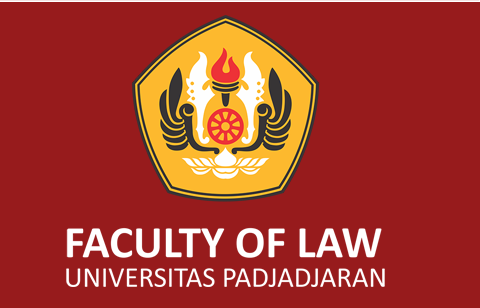Abstract
The research analyses the trade war between South Korea and Japan from the perspective of international law. The trade war involving South Korea and Japan was triggered by a decision by the Supreme Court of South Korea which ordered several Japanese companies to pay compensation to victims of Japanese forced labor during World War II. As a result, on July 1, 2019, Japan imposed restrictions on chemical exports to South Korea. South Korea accused Japan of violating international trade regulations concerning export restrictions. Therefore, South Korea took action by boycotting goods from Japan. The two countries resolved to remove each other from the whitelist of countries that obtain preferential trade status via their activities. The research method used is normative legal research with a case approach. The result shows that the trade war involving Japan and South Korea worsened bilateral relations. The World Trade Organization (WTO) carried out several mechanisms related to solving the problem, namely through consultation and conciliation involving the two countries, but it still needs to resolve the issue. It was also planned to establish a panel between South Korea and Japan by the WTO, but it has not been implemented until now and beyond the timeframe set by the WTO in establishing the Panel. Therefore, the study proposes that South Korea and Japan can initiate arbitration as a solution for another effort to resolve the problem because the arbitration mechanism obtains binding and final decisions.
Recommended Citation
Gunawan, Yordan; Akbar, M Fabian; and Corral, Eva Ferrer
(2022)
"WTO Trade War Resolution for Japan's Chemical Export Restrictions to South Korea,"
Padjadjaran Jurnal Ilmu Hukum (Journal of Law): Vol. 9:
No.
3, Article 1.
DOI: https://doi.org/10.22304/pjih.v9n3.a6
Available at:
https://journal.unpad.ac.id/pjih/vol9/iss3/1
References
References
Books
Agon, Sivan Shlomo. International Adjudication on Trial: The Effectiveness of the WTO Dispute Settlement System. Oxford: Oxford University Press, 2019.
Bossche, Peter Van den and Denise Prévost. Essentials of WTO Law. Cambridge: Cambridge University Press 2016.
C. Klein, Matthew. Trade Wars are Class Wars: How Rising Inequality Distorts the Global Economy. London: Yale University Press, 2020.
Howse, Robert (et.al.). The Legitimacy of International Trade Courts and Tribunals, Cambridge: Cambridge University Press, 2018.
Júnior, Alberto do Amaral (et.al.). The WTO Dispute Settlement Mechanism: A Developing Country Perspective. New York: Springer International Publishing, 2019.
Matsushita, Mitsuo (et.al.). The World Trade Organization Law, Practice, and Policy. Oxford: Oxford University Press, 2015.
World Trade Organization. A Handbook on the WTO Dispute Settlement System. Cambridge: Cambridge University Press, 2017.
Other Documents
Adekola, Tolulope Anthony. “US-China Trade War and the WTO Dispute Settlement Mechanism.” Journal of International Trade Law and Policy 18, no. 3 (2019): 125-135. https://doi.org/10.1108/JITLP-02-2019-0011.
Aini, Resi Qurrata and Yandry Kurniawan. “Quasi Alliance at Play: The Curious Case of South Korea’s Aborted Withdrawal from GSOMIA in 2019.” Jurnal Ilmu Sosial dan Ilmu Politik 24, no. 3 (2021): 253-267. https://doi.org/ 10.22146/jsp.59148.
Reuters. “South Korea will Lodge WTO complaint over Japan’s Export Curbs.” Aljazeera. Accessed July 11, 2022. https://www.aljazeera.com/economy/2019/9/11/south-korea-will-lodge-wto-complaint-over-japans-export-curbs.
Awaludin, Hamid. “State Border versus Culture: An International Legal Examination.” Indonesian Journal of International Law 15, no. 2 (2018): 110-119. https://doi.org/10.17304/ijil.vol15.2.721.
Babajić, Amra (et.al.). “Economic Growth, Economic Development, and Poverty: A Bibliometric Analysis.” Journal of Economic and Social Sciences 8, no. 1 (2022): 1-17. https://doi.org/10.14706/JECOSS21814.
Bhakri, Suman and Sharma Roopali. “Trade War: War of Dominance.” International Journal of Web Engineering and Technology 8, no. 4 (2021): 9-17. https://doi.org/10.1729/Journal.27177.
Chang, Yen-Chiang (et.al.). “China, Japan, and Korea Free Trade Agreement and Legal Issues Regarding the Construction of the Northeast Asia Energy Interconnection.” Journal of Renewable and Sustainable Energy 12, no. 4 (2020): 1-9. https://doi.org/10.1063/5.0003919.
Chemutai, Vicky and Hubert Escaith. “Measuring World Trade Organization (WTO) Accession Commitments and their Economic Effects.” Journal of International Commerce, Economics and Policy 8, no. 2 (2017): 1-27. https://doi.org/10.1142/S1793993317500077.
Claussen, Kathleen. “Next Generation Agreement and the WTO.” World Trade Review 21, no. 3 (2022): 380-388, https://doi.org/10.1017/S1474745622000131.
Duffy, Frances Annmarie. “The Slow Demise of the Most Favoured Nation.” Prophetic Law Review 3, no. 2 (2021): 111-130. https://doi.org/10.20885/PLR.vol3.iss2.art1.
Flowers, Zachary. “The Role of Precedent and Stare Decisis in the World Trade Organization's Dispute Settlement Body.” International Journal of Legal Information 47, no. 2 (2019): 91. https://doi.org/10.1017/jli.2019.21.
Gebeyehu, Meaza Haddis. “The Impact of Political Decisions within the WTO Dispute Settlement System: Political Negotiations within Adjudication.” Indonesian Journal of International Law 17, no. 1 (2019): 43-65. https://doi.org/10.17304/ijil.vol17.1.781.
Gunawan, Yordan. “Transboundary Haze Pollution in the Perspective of International Law of State Responsibility.” Jurnal Media Hukum 21, no. 2 (2014): 171-180, https://doi.org/10.18196/jmh.v21i2.1185.
Hendarjat, Rafidhia Putri and Paksi, Arie Kusuma Paksi. “Japanese Government Reasons behind the Removal of South Korea from Preferential Whitelist: A Mercantilism Perspective.” Jurnal Studi Diplomasi dan Keamanan 14, no. 2 (2022): 76-77. https://doi.org/10.31315/jsdk.v14i2.6699.
Igwe, Isaac O.C. "History of the International Economy: The Bretton Woods System and its Impact on the Economic Development of Developing Countries." Athens Journal of Law 4, no. 2, (2017): 105-126. https://doi.org/10.30958/ajl.4.2.1.
J. W, Yun. “Conservative Politics and Compassionate Paternalism in Korea and Japan: No Way Out?” Asian Survey 59, no. 5 (2019): 911–936. https://doi.org/10.1525/as.2019.59.5.911.
Jin, Yueru (et.al.). "Factors That Have Led to the Collapse of the Bretton Woods System." American Journal of Industrial and Business Management 8, no. 10 (2018): 2133-2142. https://doi.org/10.4236/ajibm.2018.810141.
Kalsie, Anjala and Ashima Arora. “US–China Trade War: The Tale of Clash between Biggest Developed and Developing Economies of the World.” Management and Economics Research Journal 5, no. 1 (2019): 1-11. https://doi.org/10.18639/MERJ.2019.956433.
Khurana, Chaitanya. “Review of Game Theory Applications in International in Trade.” International Journal of English Literature and Social Sciences 7, no. 1 (2022): 196-206. https://doi.org/10.22161/ijels.71.26.
Kim, Anna. “Understanding Japan–South Korea Cooperation and Friction Through Neoclassical Realist Theory.” Jadavpur Journal of International Relations 24, no. 1 https://doi.org/10.1177/0973598419888279.
Kim, Brian. “Korea and Japan Clash over History and Law.” Accessed August 16, 2022. https://www.lawfareblog.com/korea-and-japan-clash-over-history-and-law.
Kitetua, Geoffrey Musyoki (et.al.). “Revealed Trade Competitiveness Between Korea and Japan. Is It Viable to Deepen Economic Integration?” Journal of Global Business and Trade 17, no. 2 (2021): 67-84. https://doi.org/10.20294/jgbt.2021.17.2.67.
Le, Tom Phuong. “Negotiating in Good Faith: Overcoming Legitimacy Problems in the Japan-South Korea Reconciliation Process.” The Journal of Asian Studies 78, no. 3 (2019): 621-644. https://doi.org/10.1017/S0021911819000664.
M.A, Crowleyand and J. Hillman. “Slamming the Door on Trade Policy Discretion? The WTO Appellate Body’s Ruling on Market Distortions and Production Costs in EU–Biodiesel (Argentina).” World Trade Review 17, no. 2 (2018): 195-213. https://doi.org/10.1017/S1474745617000581.
Malkawi, Bashar H. “Can Article 25 Arbitration Serve as a Temporary Alternative to WTO Dispute Settlement Process?” Accessed June 15, 2022. http://arbitrationblog.kluwerarbitration.com/2019/01/05/can-article-25-arbitration-serve-as-a-temporary-alternative-to-wto-dispute-settlement-process/.
Marceau, Gabrielle. “WTO and Export Restrictions.” Journal of World Trade 50, no. 4 (2016): 563-586. https://doi.org/10.54648/TRAD2016024.
Min-hee, Jung. “S. Korea Likely to Suffer Big Blow from Japan’s Export Regulations on 1,100 Strategic Materials.” Accessed July 30, 2022. http://www.businesskorea.co.kr/news/articleView.html?idxno=34403.
Mitzy, Gulia Ichikaya and Tri Wahyuningrum Indarto. “Comfort Women: The Causes of Other Trade Wars in East Asia.” Journal of Social Political Sciences 1, no. 3 (2020): 178-194, https://doi.org/10.31315/jsdk.v14i2.6699.g4435.
Moon-hee, Choi. “Credit card sales of Japanese Retailers Falling due to Koreans’ Boycott of Japanese Goods.” Accessed July 30, 2022. http://www.businesskorea.co.kr/news/articleView.html?idxno=34433.
Nugroho, Fahrizal and Mossadeq Bahri. “History and Japanese South Korea Trade Wars.” Japanese Research on Linguistics Literature and Culture 2, no. 1 2019: 46-59. https://doi.org/10.33633/jr.v2i1.3353.
Panneerselvam, Prakash. “Changing Dynamics of Regional Trade and Cooperation: A Case of Japan and South Korea.” Artha-Journal of Social Sciences 19, no. 4 (2019): 1-20. https://doi: 10.12724/ajss.55.1.
Purnamaa, Putri Dewiand Ming Hung Yao. “The Relationship Between International Trade and Economic Growth: An Empirical Finding from ASEAN Countries.” International Journal of Applied Business Research 1, no. 2 (2019): 112-123. https://doi.org/10.35313/ijabr.v1i02.72.
Reuters. “Japan and South Korea meet, Restate Positions in Dispute.” Accessed on July 11, 2022. https://www.reuters.com/world/asia-pacific/japan-south-korea-meet-restate-positions-dispute-2021-09-23/.
Reuters. “South Korea Removes Japan from Fast-Track Trade Whitelist.” Accessed July 11, 2022. https://www.reuters.com/article/us-southkorea-japan-whitelist/south-korea-removes-japan-from-fast-track-trade-white-list idUSKBN1W21T2.
Rojas, Jose Jaime Baena and Susana Herrero Olarte. “From Preferential Trade Arrangements to Free Trade Agreements: One of the Downturns of Cooperation in International Relations?” Social Sciences 9, no. 8 (2020): 1-15. https://doi.org/10.3390/socsci9080139.
Sastrowiyono, Akhmad Al-Farouqi. “The Pro’s and Con’s of Arbitration: A Study of International Arbitration with Perspective of Indonesian and Korean Law.” Lex Renaissance 4, no. 2 (2019): 231-247. https://doi.org/10.20885/JLR.vol4.iss2.art2
Schwartz, Thomas and John Yoo. “Asian Territorial Disputes and the 1951 San Francisco Peace Treaty: The Case of Dokdo.” Chinese Journal of International Law 18, no. 3 (2019): 503-550. https://doi.org/10.2139/ssrn.3434682
Shin, Sangho and Edward J Balistreri. “The Other Trade War: Quantifying the Korea–Japan Trade Dispute.” Journal of Asian Economics 79, no. 1 (2022): 12-40. https://doi.org/10.1016/j.asieco.2022.101442.
Song, Eugene. “South Korean Consumers’ Attitudes toward Small Business Owners Participating in the 2019 Anti-Japan Boycott.” Social Sciences 9, no. 5 (2020): 1-15. https://doi.org/10.3390/socsci9050074.
Supeno. “International Trade Dispute Settlement Through Dispute Settlement Body (DSB) and International Arbitration Body.” Nurani: Jurnal Kajian Syari’ah dan Masyarakat 20, no. 1 (2020): 147-161. https://doi.org/10.19109/nurani.v20i1.6043.
Tamaki, Taku. “It Takes Two to Tango: The Difficult Japan–South Korea Relations as Clash of Realities.” Japanese Journal of Political Science 21, no. 1 (2019): 1-18. https://doi.org/10.1017/S1468109919000161.
Wang, Q. E. “The Study of “Comfort Women: Revealing a Hidden Past-Introduction.” Chinese Studies in History 53, no. 1 (2019): 1-5. https://doi.org/10.1080/00094633.2019.1691414.
Widiatedja, I Gusti Ngurah Parikesit. “The Supremacy of the Dispute Settlement Mechanism (DSM) under the World Trade Organization (WTO).” Brawijaya Law Journal 6, no. 1 (2019): 60-75. https://doi.org//10.21776/ub.blj.2019.006.01.05.
World Trade Organizations, “Agreement Establishing the World Trade Organizations.” Accessed 21, 2022. https://www.wto.org/english/docs_e/legal_e/04-wto.pdf.
World Trade Organizations, “The WTO Agreement Series.” Accessed June 1, 2022. https://www.wto.org/english/res_e/booksp_e/agrmntseries2_gatt_e.pdf.
World Trade Organizations, “Export Prohibitions and Restrictions.” Accessed July 23, 2022. https://www.wto.org/english/tratop_e/covid19_e/export_prohibitions_report_e.pdf.
World Trade Organizations. “Japan Measures Related to the Exportation of Products and Technology to Korea.” Accessed June 20, 2020. https://www.wto.org/english/tratop_e/dispu_e/cases_e/ds590_e.htm.
Yohanes, Triyana (et.al.). “Legally Binding of the World Trade Organization Dispute Settlement Body’s Decision.” Hasanuddin Law Review 3, no. 2 (2017): 160-174. https://doi.org/10.20956/halrev.v3i2.1107.
Yu, Ji-Whan. “Post Democracy and Historicism: The Hidden Origin of the Korea-Japan Trade War.” Issues & Studies: A Social Science Quarterly on China, Taiwan, and East Asian Affairs 57, no. 1 (2021): 1-27. https://doi.org/10.1142/S101325112150003X.
DOI
https://doi.org/10.22304/pjih.v9n3.a6










